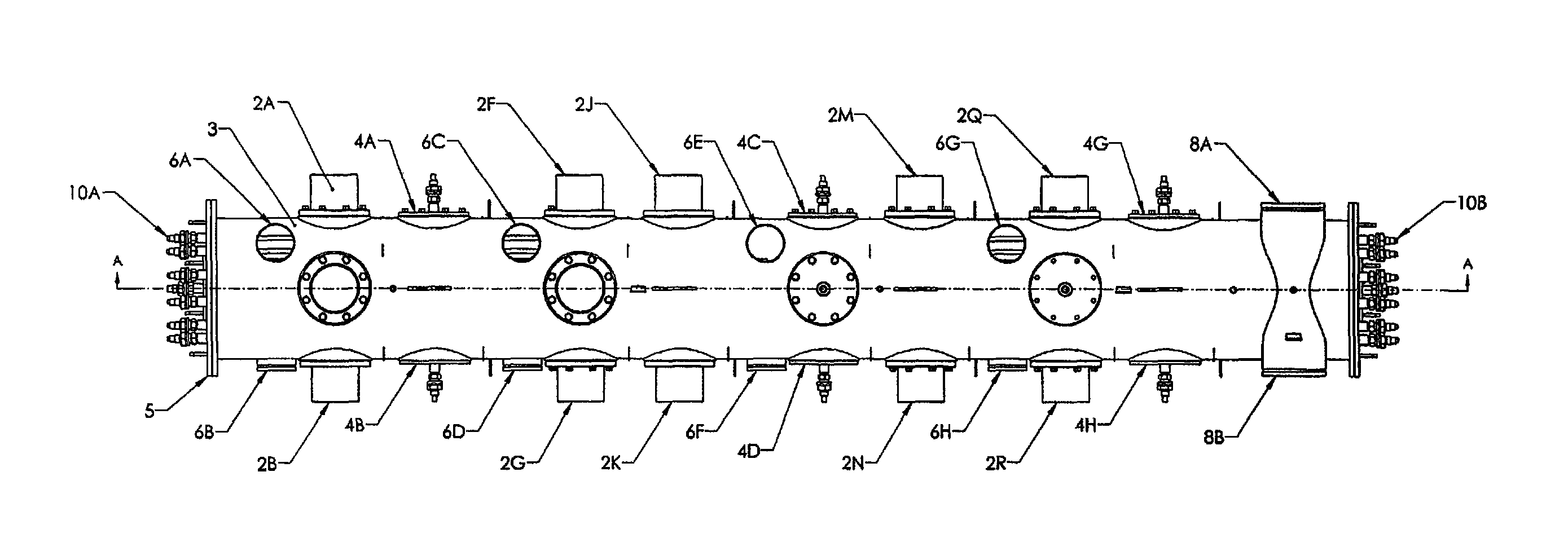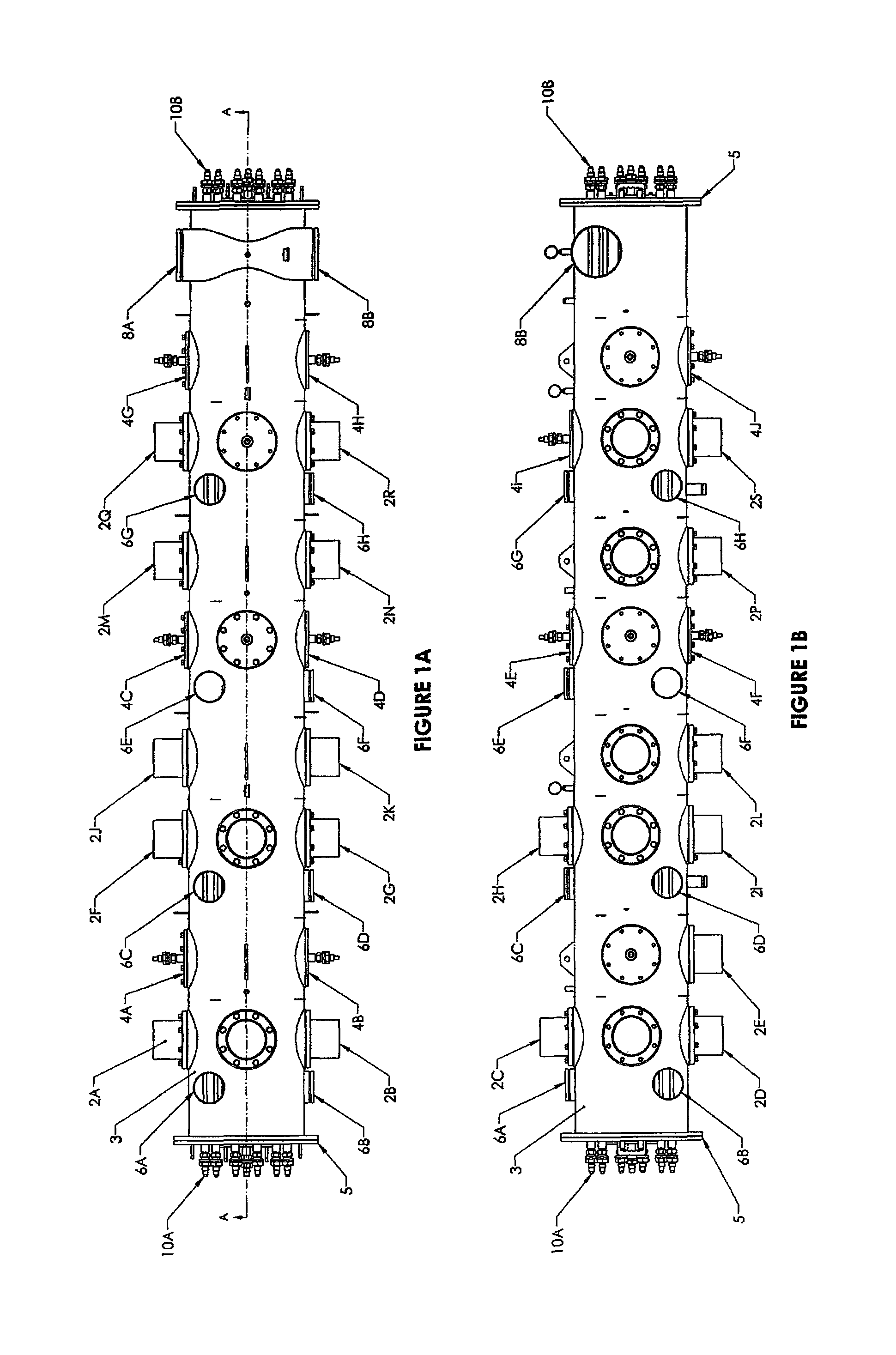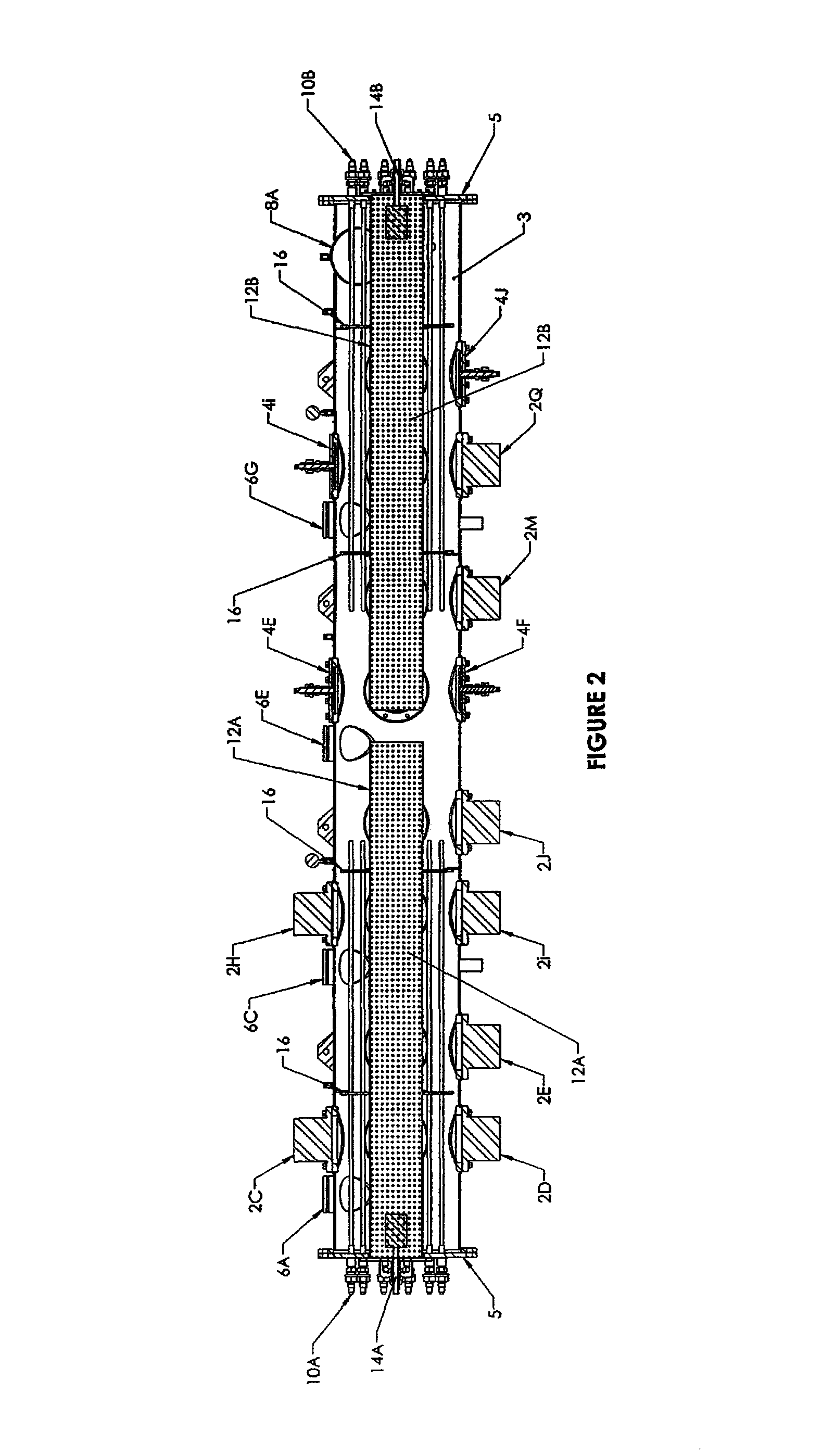Process for treating fluids
a technology for fluid treatment and fluids, applied in the field of fluid treatment, can solve the problems of high cost, dangerous situation, and high cost of fluid treatment, and achieve the effects of improving the mixture of effluent and ozone, accelerating mass transfer, and improving the mixing rate of effluen
- Summary
- Abstract
- Description
- Claims
- Application Information
AI Technical Summary
Benefits of technology
Problems solved by technology
Method used
Image
Examples
Embodiment Construction
[0051]FIG. 1A is a top view of the main reactor 1 of the treatment system and FIG. 1B is a side view of the main reactor 1. The main reactor 1 includes a cylindrical housing 3 that is, by way of example, approximately 16.5 feet long and 2 feet in diameter. A circular end plate 5 is mounted on each end of the cylindrical housing 3. Located along the length of the cylindrical housing are eighteen ultrasonic transducers 2A,2B,2C,2D,2E,2F, 2G, 2H, 2J,2K, 2L, 2M,2N, 2P,2Q, 2R and 2S. Each of the ultrasonic transducers is rated at 500 W capacity and is also equipped with a heated plate that is rated at 1000 W. At given flow rates it maintains a ΔT of 40 degrees that enhances the precipitation within the main reactor. Each transducer can produce an acoustic output in the range of 16 to 20 KHz and can be individually adjusted to the desired output frequency. Each transducer includes a diaphragm that is balanced with the help of a pressure compensation system so that a maximum amount of ultr...
PUM
| Property | Measurement | Unit |
|---|---|---|
| diameter | aaaaa | aaaaa |
| diameter | aaaaa | aaaaa |
| surface area | aaaaa | aaaaa |
Abstract
Description
Claims
Application Information
 Login to View More
Login to View More - R&D
- Intellectual Property
- Life Sciences
- Materials
- Tech Scout
- Unparalleled Data Quality
- Higher Quality Content
- 60% Fewer Hallucinations
Browse by: Latest US Patents, China's latest patents, Technical Efficacy Thesaurus, Application Domain, Technology Topic, Popular Technical Reports.
© 2025 PatSnap. All rights reserved.Legal|Privacy policy|Modern Slavery Act Transparency Statement|Sitemap|About US| Contact US: help@patsnap.com



